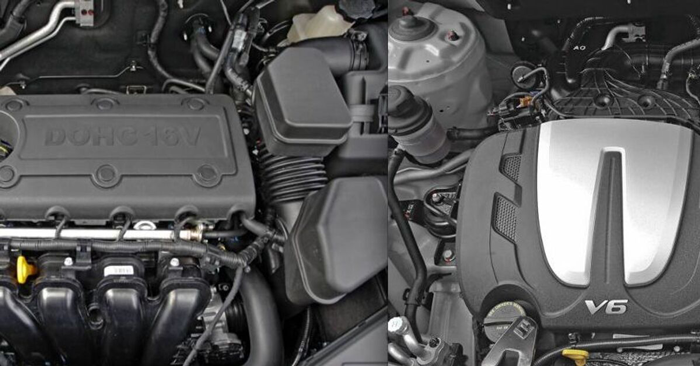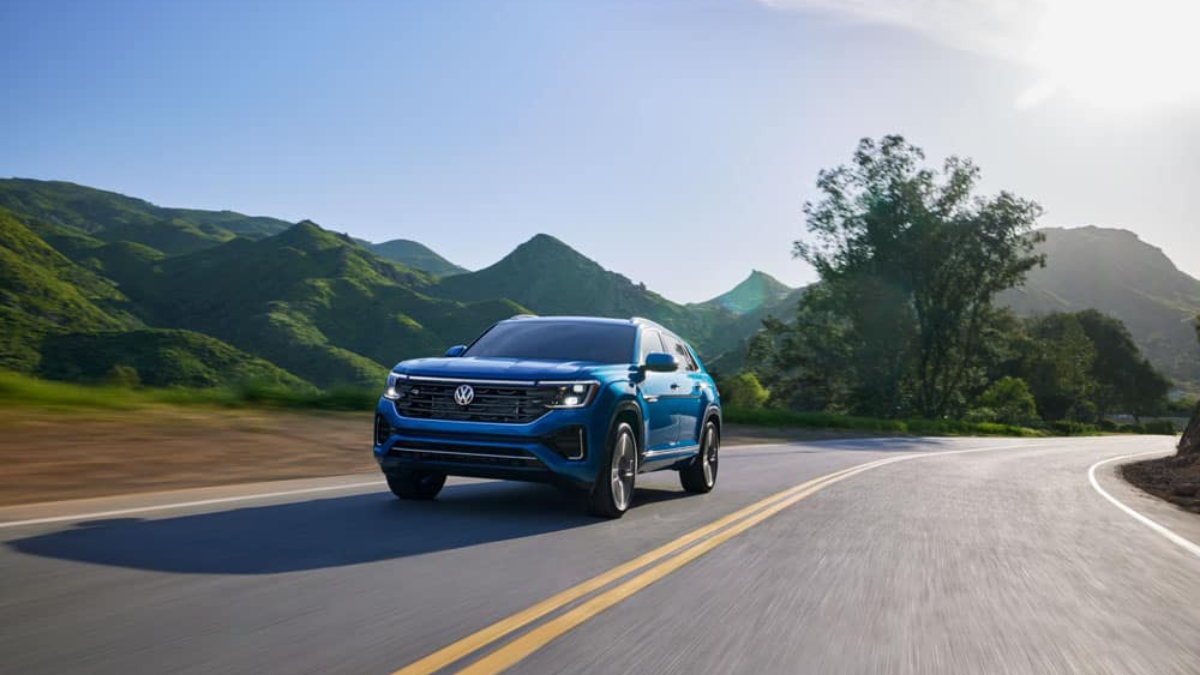So, you’re in the market for a new ride, and you’re faced with the age-old dilemma: 4 cylinders or 6 cylinders? As a car enthusiast, I’ve been down this road before, and let me tell you, it’s a real head-scratcher. Picture this: you’re revving up your engine at a stoplight, and you can’t help but wonder, “Do those extra 2 cylinders really make a difference?” Well, buckle up, because I’m here to break it down for you in a way that even your grandma would understand.
When it comes to the battle of the cylinders, it’s not just about the numbers; it’s about the heart and soul of your car. Sure, a 6-cylinder engine may pack more punch, but don’t underestimate the spunk of a feisty 4-cylinder. From fuel efficiency to horsepower, each cylinder count has its own quirks and charms that make them unique. So, grab your popcorn, folks, because we’re about to jump into the wild world of cylinders, where every rev is a symphony of power and performance.
Overview of 4-Cylinder and 6-Cylinder Engines
Ah, cylinders, the heart and soul of an engine – where fewer or more can make a world of difference. Let’s jump into the intriguing area of 4-cylinder and 6-cylinder engines without getting our pistons in a twist.

Decoding Cylinders
- 4-Cylinder Engine: Picture this – a quartet of cylinders working harmoniously, balancing efficiency with adequate power.
- 6-Cylinder Engine: Now, imagine two additional cylinders joining the party, offering more oomph and smoother operation.
Fuel Efficiency Showdown
- 4-Cylinder Engine: Famous for sipping fuel like a refined tea party attendee, saving you those precious pennies at the pump.
- **6-Cylinder Engine: ** While not as frugal as its 4-cylinder counterpart, it compensates with a punchier performance that might just make those extra stops at the gas station worth it.
- 4-Cylinder Engine: Packs a decent punch for everyday commuting, keeping things practical and pocket-friendly.
- 6-Cylinder Engine: Flexes its muscles with higher horsepower, ideal for those who love to feel the road beneath their wheels.
Key Differences Between 4-Cylinder and 6-Cylinder Engines
Well, here’s the scoop on the beef between these engine types – the magical showdown between 4-cylinder and 6-cylinder engines! Buckle up as I unravel the mysteries of power, efficiency, and cost with a sprinkle of humor.
Power and Performance
So, let’s talk muscles! A 6-cylinder engine is like that over-caffeinated friend who’s always revved up and ready to go, pumping out power and performance on demand. It’s the adrenaline junkie of engines, bringing that extra oomph to your driving experience.
On the other hand, the 4-cylinder engine is the reliable buddy who’s all about efficiency without sacrificing too much power. It’s like finding that perfect balance between getting things done and enjoying a smooth ride without burning a hole in your wallet.
Fuel Efficiency
Ah, the eternal quest for sipping less fuel! Picture this: the 4-cylinder engine is that thrift-savvy friend who always knows how to make a gallon of gas last longer. It’s like having a personal fuel-saving guru under your hood, ensuring you go the extra mile without very costly.
The 6-cylinder engine? Well, let’s just say it’s more like that friend who enjoys the thrill of the ride, even if it means a few more trips to the gas station. It’s all about power and performance, willing to trade a bit of efficiency for that exhilarating drive.
Cost Implications
Money talks, right? With a 4-cylinder engine, you’re looking at a more budget-friendly option upfront. It’s like choosing the sensible meal deal at a restaurant – you get good value without emptying your pockets.
On the flip side, a 6-cylinder engine might require a bit more investment initially, but hey, you’re paying for that extra kick and horsepower. Think of it as upgrading to the deluxe package – you get the works, but it comes with a slightly heftier price tag.
Suitability and Vehicle Types
When it comes to deciding between a 4-cylinder and a 6-cylinder engine, understanding the best uses for each can help you make the right choice for your driving needs.
Best Uses for 4-Cylinder Engines
- Daily Commuting: If you’re cruising through the daily traffic grind, a 4-cylinder engine is like having a reliable sidekick. It’s efficient, saving you fuel and money on those long commutes to work or errands around town.
- Eco-Friendly Trips: For the environmentally conscious drivers out there, a 4-cylinder engine is like having a green superhero under the hood. It sips fuel gently, reducing emissions and your carbon footprint on the planet.
- Budget-Friendly Rides: If you’re watching your wallet, a car with a 4-cylinder engine is your financial advisor. It offers a pocket-friendly upfront cost and keeps your maintenance expenses in check.
- Performance Enthusiasts: If speed and power are your jam, a 6-cylinder engine is your adrenaline rush. It’s like strapping yourself into a rocket ship, delivering that exhilarating performance on demand.
- Towing and Hauling: Need to move heavy loads or hitch a trailer? A 6-cylinder engine is your muscular buddy. It provides the extra strength needed for towing boats, trailers, or carrying hefty payloads.
- Luxury and Premium Rides: For those looking for a touch of luxury, a car with a 6-cylinder engine is like upgrading to VIP status. It offers a smooth and refined driving experience that screams upscale sophistication.
Advantages of Modern Technology in Engine Performance
Engines have come a long way from the Flintstones era. Let’s jump into how modern technology has revved up engine performance to new heights!
Impact of Turbocharging
Turbocharging, my friends, is like giving your engine a shot of espresso on a Monday morning. It’s the extra kick in the pants that boosts power without adding extra cylinders. How cool is that? Here’s why turbocharging is the bee’s knees:
- More Power, Less Engine: Turbocharging can squeeze more power out of a smaller engine, giving you that oomph without the bulk.
- Efficiency Over Everything: By cramming more air into the engine, turbochargers improve fuel efficiency. It’s like getting more bang for your buck, quite literally!
- Instant Gratification: Who doesn’t love instant results? Turbochargers reduce lag, giving you that immediate power surge when you need it most.
Advances in Engine Technology
Modern engines are like the swiss army knives of the automotive world. They can do it all! Here’s a sneak peek into the wizardry of engine technology:
- Direct Injection Magic: Say goodbye to wasted fuel. Direct injection technology squirts fuel directly into the combustion chamber, making every drop count.
- Variable Valve Timing (VVT): It’s like having a personal assistant for your engine. VVT adjusts the timing of the opening and closing of the valves, optimizing performance at different engine speeds.
- Hybrid Power: No, we’re not talking about cars running on kale smoothies. Hybrid powertrains blend the best of both worlds, combining internal combustion engines with electric motors for an eco-friendly punch.
Conclusion
Well, folks, it’s been a wild ride exploring the epic battle between 4-cylinder and 6-cylinder engines. From the efficiency of the 4-cylinder to the power-packed punch of the 6-cylinder, each engine type brings its own flair to the table. With modern advancements like turbocharging, direct injection, variable valve timing, and hybrid powertrains, these engines have evolved into powerhouses of performance and eco-friendliness. So whether you’re zipping through the city streets or towing your toys for a weekend getaway, there’s an engine out there waiting to rev up your driving experience. Choose wisely and enjoy the ride!
Frequently Asked Questions
What are the advantages of a turbocharged engine?
A turbocharged engine increases power output without increasing engine size. This improves fuel efficiency and reduces emissions, offering a good balance of power and efficiency in modern vehicles.
What is direct injection technology in engines?
Direct injection technology optimizes fuel delivery by injecting fuel directly into the combustion chamber. This results in improved fuel efficiency, power output, and lower emissions compared to traditional fuel injection methods.
How does variable valve timing improve engine performance?
Variable valve timing adjusts the timing of the opening and closing of engine valves based on driving conditions. This optimizes performance, improves fuel efficiency, and enhances engine power output across different RPM ranges.
What are the benefits of hybrid powertrains in vehicles?
Hybrid powertrains combine an internal combustion engine with an electric motor to improve fuel efficiency and reduce emissions. They offer eco-friendly driving experiences with lower fuel consumption and greater sustainability.

